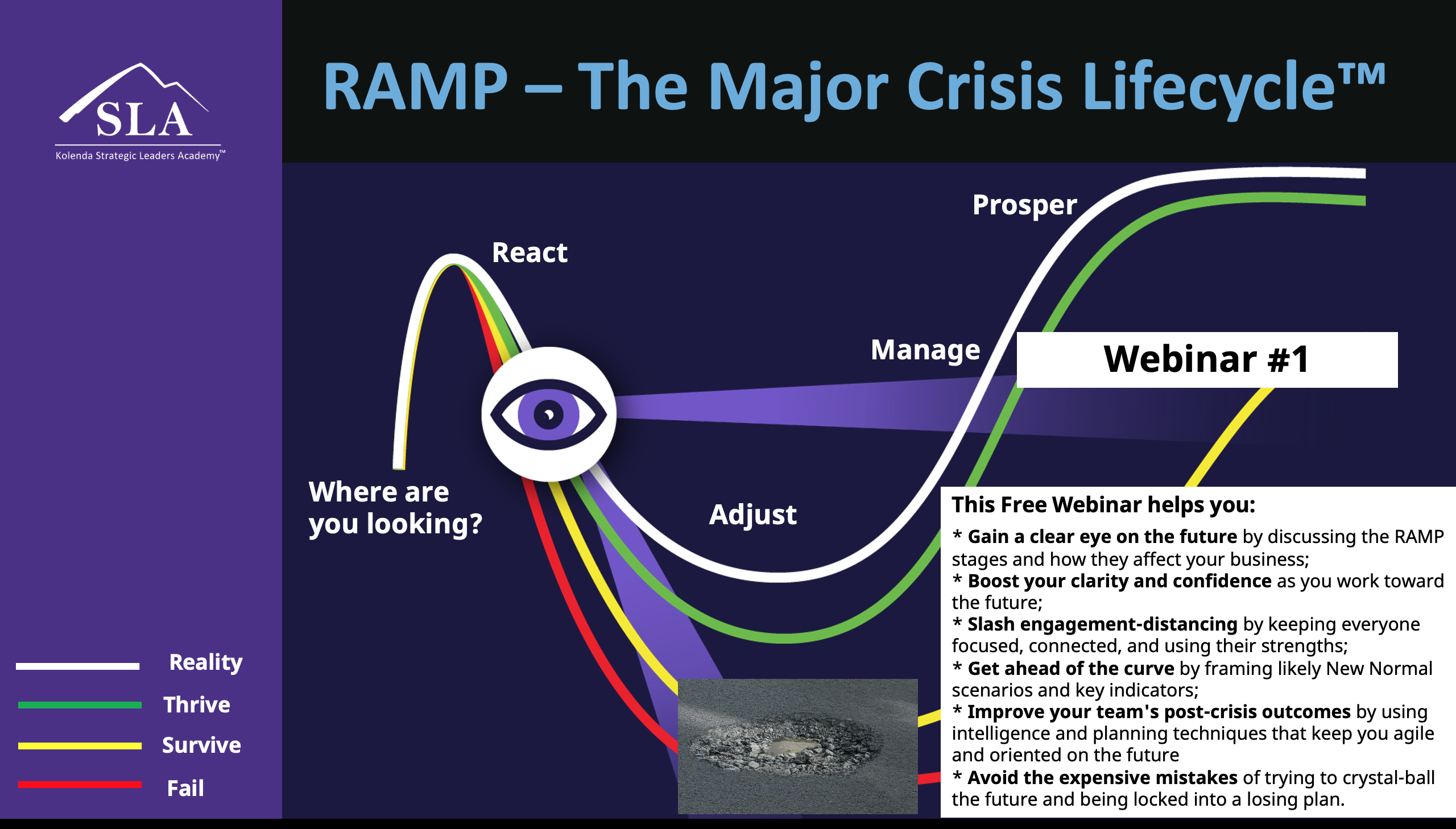

4 Phases you need to know, so you can thrive in the post-crisis new normal

Are you staring at the pothole or looking at where you want to go?
You know the pothole principle: if you are riding a bike or driving a car and come upon the pothole, your best approach is to look where you want to go. Your reflexes will take you around the pothole and safely on your way.
If you stare at the pothole, you will drive right into it.
As hard as it is to look at the future when gripped in this crisis, the same principle applies. Keep your eyes on where you want to go.
Here's how this webinar helps you do that.
Every major crisis has a lifecycle.
A major crisis is national or global in scale, the major decisions for addressing the crisis are outside your control, and those decisions have a significant effect on your business.
You cannot control government decisions, but you can manage your decisions. This is why knowing the major crisis lifecycle is so important.
Major Crises follow four phases. We call it RAMP.
React: Governments and millions of people make initial decisions to deal with the crisis. Data is limited, so the interventions tend to be drastic.
Adjust: Better data = better decisions. Governments fine-tune their responses.
Manage: A new normal sets in - new laws, regulations, rules, and the like.
Prosper: People adapt to the new normal and begin to prosper.
So what?
The faster you can anticipate the new normal, the more quickly you can take action to prosper. Slow adapters need to make expensive changes. Too late adapters fail. That happened to over 1.8 million small businesses after the 2008 financial crisis.
Here's how this webinar will help you:
* Gain a clear eye on the future by discussing the RAMP stages and how they affect your business;
* Boost your clarity and confidence as you work toward the future;
* Slash engagement-distancing by keeping everyone focused, connected, and using their strengths;
* Get ahead of the curve by framing likely New Normal scenarios and key indicators;
* Improve your team's post-crisis outcomes by using intelligence and planning techniques that keep you agile and oriented on the future
* Avoid the expensive mistakes of trying to crystal-ball the future and being locked into a losing plan.
The webinar goes live on April 1 at 7 am Eastern time.

Chris has helped his clients grow by over $25 million and counting. He is a West Point graduate, internationally renowned combat leader, retired Army Colonel, business leader and author of the critically acclaimed book, Leadership: The Warrior’s Art -- which has sold over 50,000 copies, Chris draws from a storied military career and extensive practice and scholarship, to help leaders and teams succeed sustainably. He has been featured on CNN, MSNBC, BBC, NPR, The Wall Street Journal, The Economist, The New York Times, and The Washington Post.
SLA’s trainings are an exceptional opportunity to empower your team to accomplish more. Our providers loved the blend of historical examples and practical lessons for today. His sincerity and authenticity captivated everyone. We are seeing at least 50% improvement in level of ownership and engagement and our conversion numbers have increased by 15%, bringing more revenue into the company.
Stefan McFarland, Vice President, Aspire